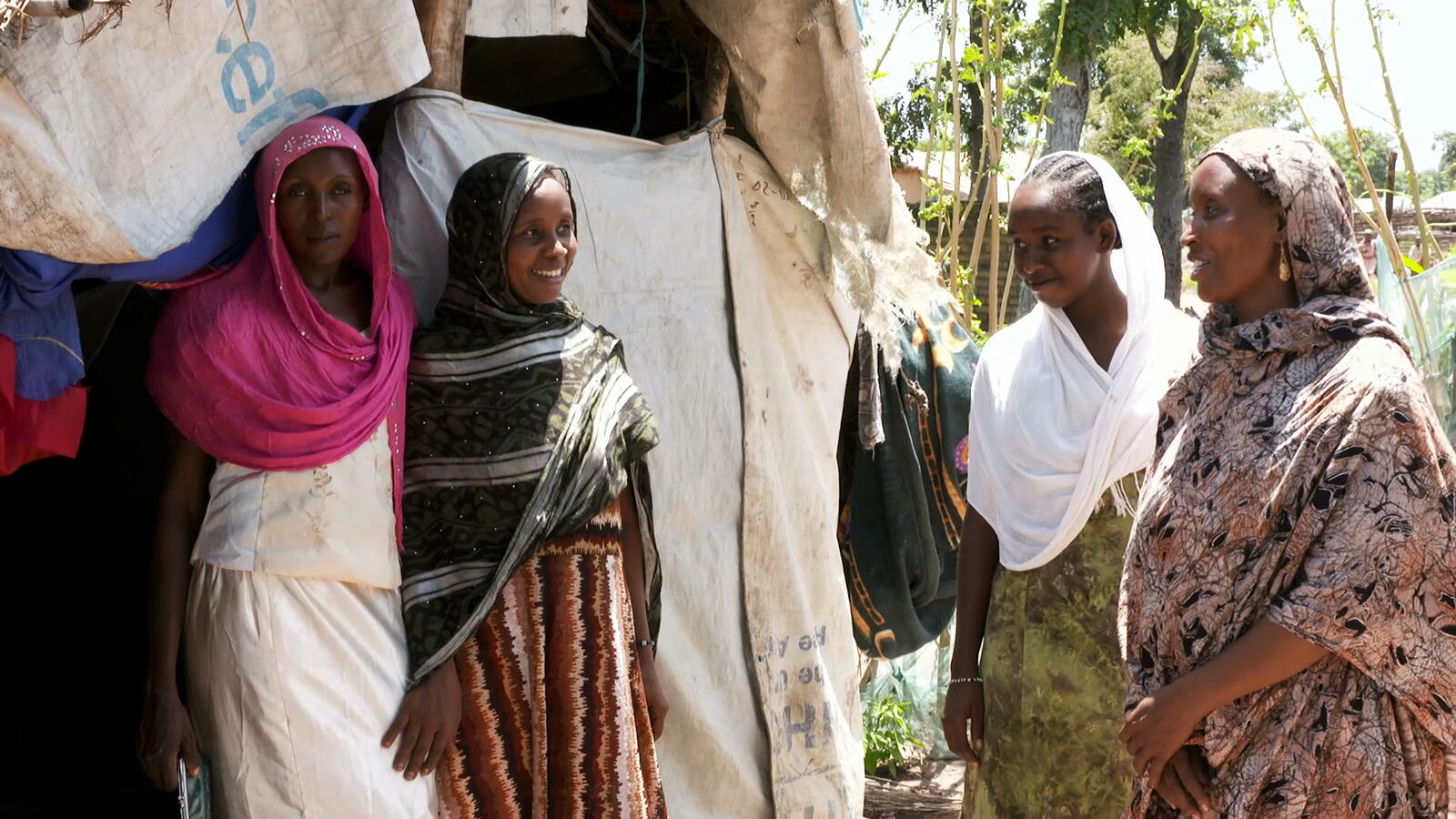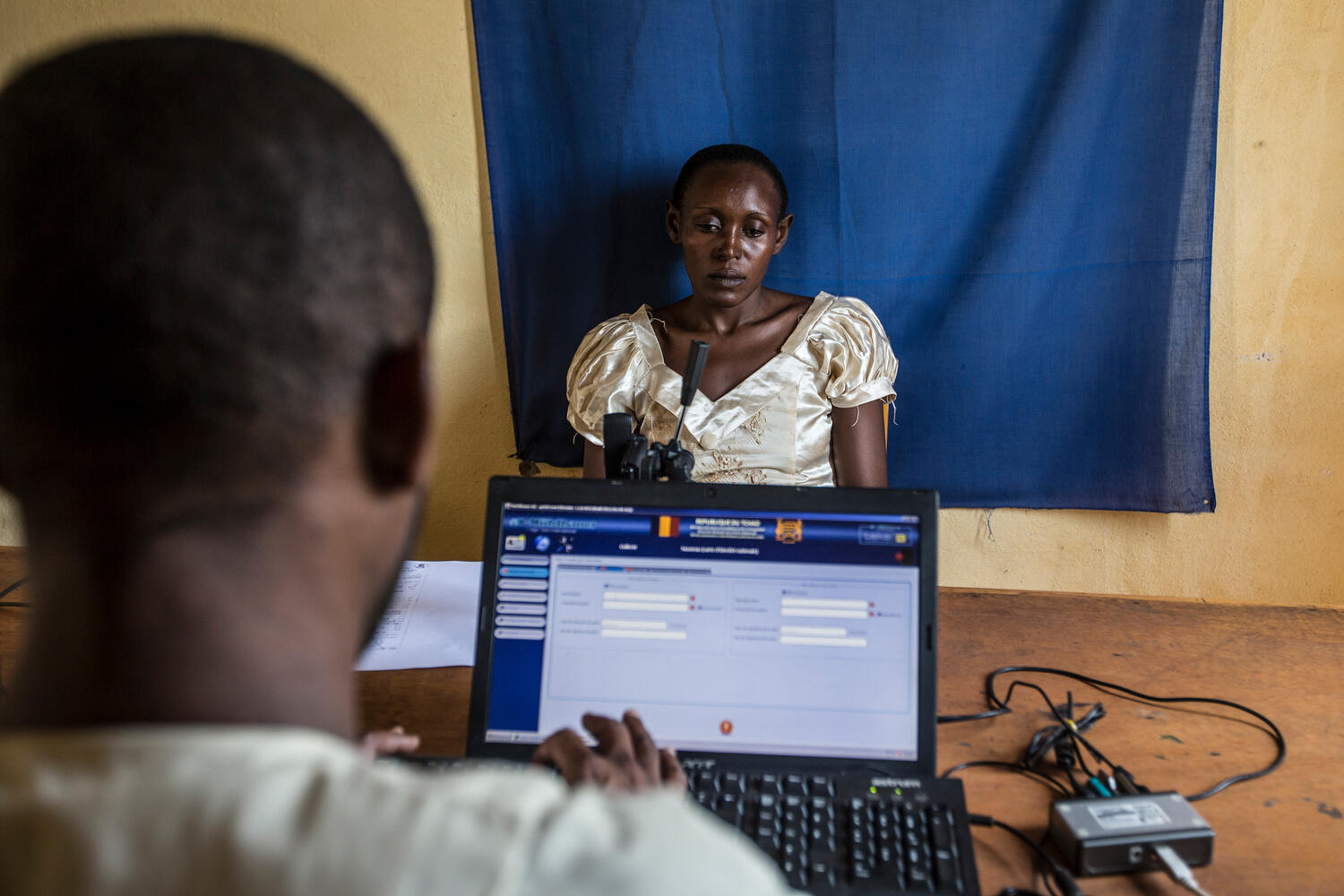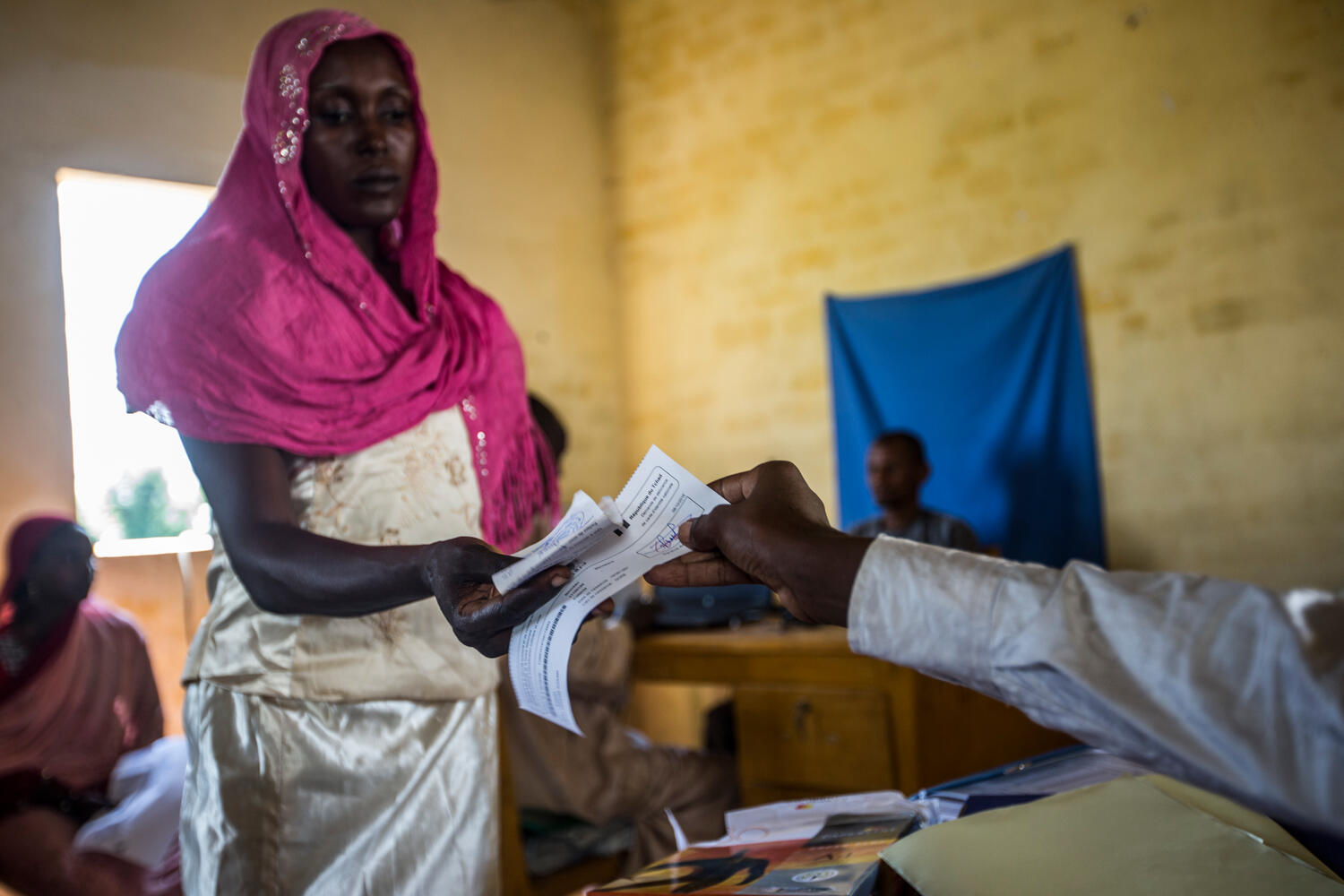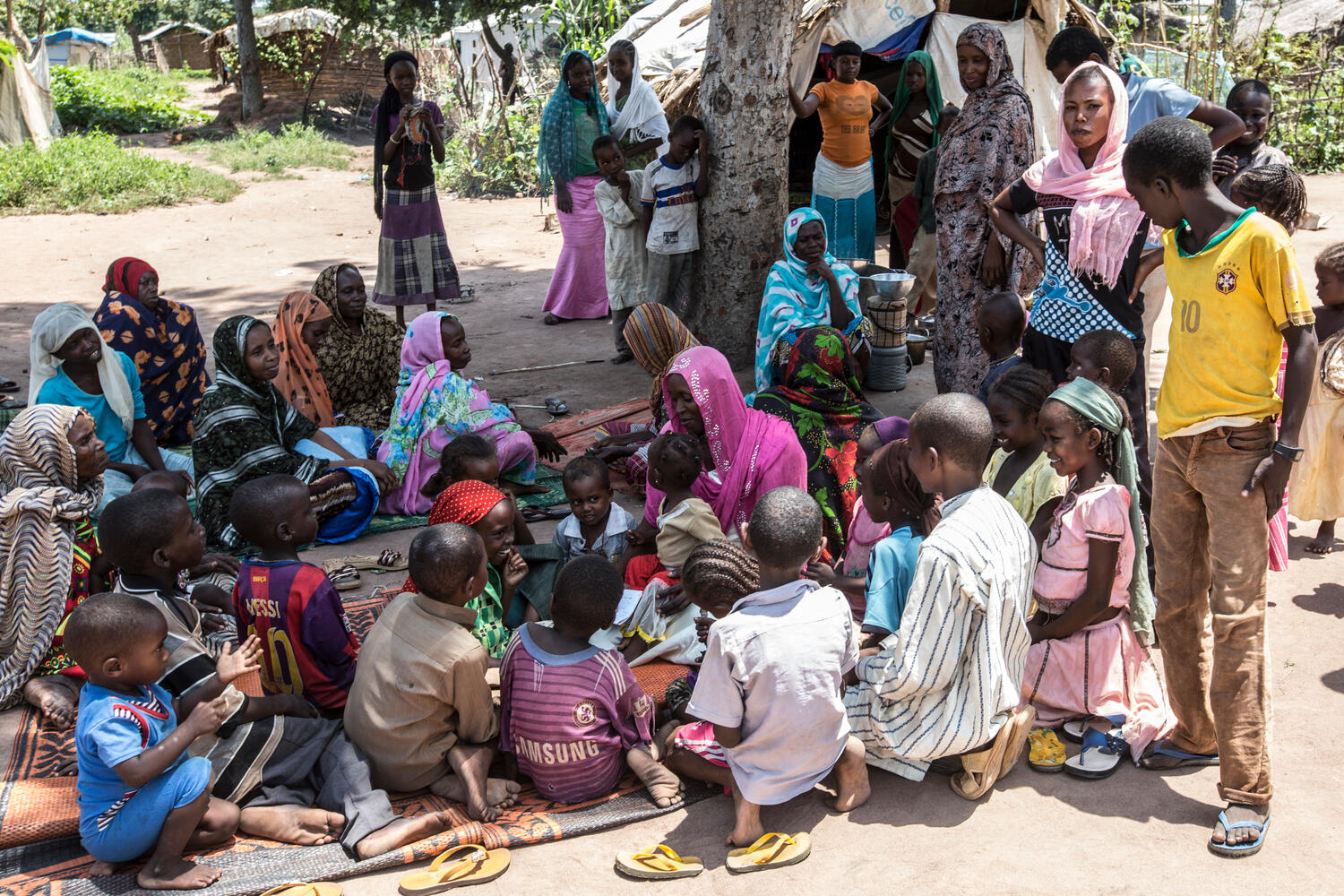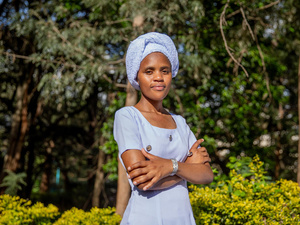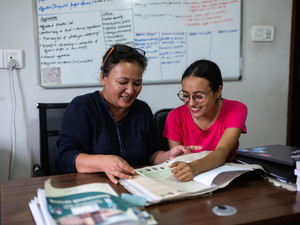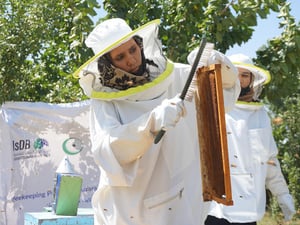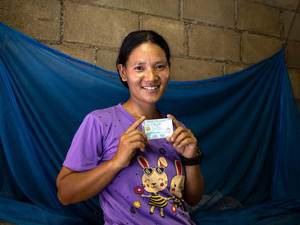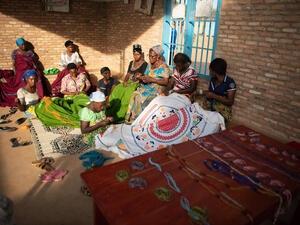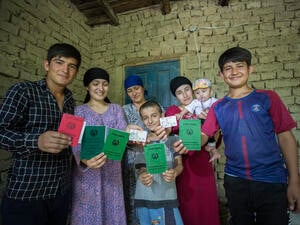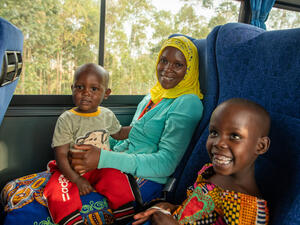Chad helps returnees at risk of statelessness to get papers
Chad helps returnees at risk of statelessness to get papers
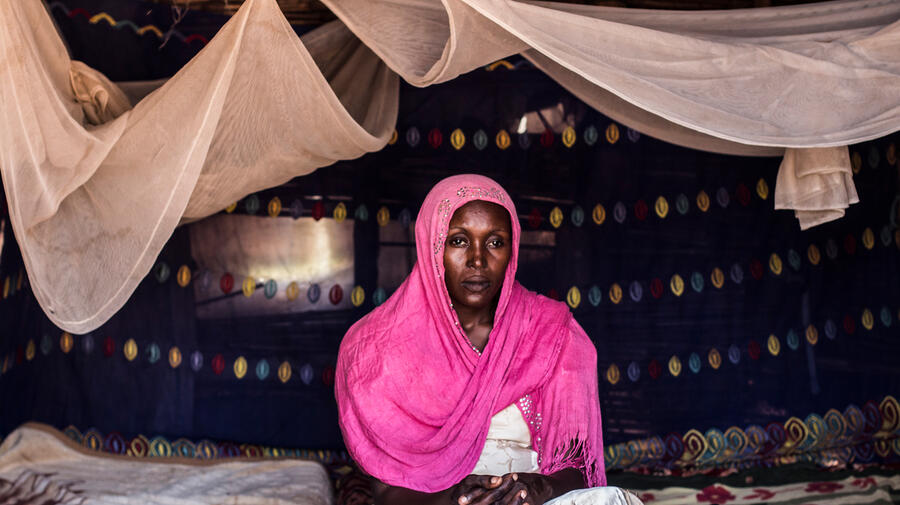
Mother-of-four Samira Hassan was born and raised in the Central African Republic but fled to Chad, her parents' home country in 2014. At risk of statelessness, she applied for a Chadian national ID card under a new programme.
GORÉ, Chad – One day three years ago, during a break at the farm where she worked, Samira Hassan took a walk to the top of a nearby hill that overlooked Bossembélé, the town she called home in the west of the Central African Republic (CAR).
As she watched, horrified, a column of troops from a rebel militia that was then at war with the country's government attacked the town. Within minutes, dark clouds of billowing smoke shrouded Bossembélé.
Samira, 23, knew her three children were safe back at the farm. But she saw her own house overtaken by a raging fire. Later she learnt that her mother had died in the inferno. Her brother, uncle, and two cousins were murdered at a mosque during the same raid.
"I only realized how important it was to have identity documents when I fled to Chad."
"Since that day, I have heard no news about my husband," says Samira. "That was it for me, I immediately took the kids and ran to the country of my parents, Chad."
Samira left behind the bodies of her loved ones in the ruins of her home. She also left behind vital documents that she had no idea she would need to avoid the years of uncertainty she has faced since. At the time, her only thought was to flee to safety.
Samira's parents are from Chad, but moved to CAR for work. She was born and raised in CAR, but was never granted citizenship there. At the same time, papers that could prove her parents were Chadian - and that therefore, under their country’s nationality law, she too had acquired Chadian nationality at birth - were left in her burned-out home.
So when she and 75,000 others in her situation fleeing the conflict in CAR reached Chad, they had no way to prove who they were, or that they were entitled to citizenship of the country that now sheltered them in refugee camps around the town of Goré.
"I only realized how important it was to have identity documents when I fled to Chad," says Samira, who only reached the country after a roundabout trek. "We had to cross to Cameroon first, then we were escorted to Goré. During this exhausting, five-week trip, we were asked many times to present our documents. We had none, it made everything more complicated."
Chad welcomes refugees and returning Chadians alike. Samira is now one of more than 6,000 returnees who have undergone biometric registration and nationality verification under a new European Union-funded programme to support returnees and prevent statelessness.
Implemented by the local authorities in collaboration with UNHCR, the UN Refugee Agency, and its partners, the EU-funded programme is set to expand to another area in southern Chad, where a further 11,000 people like Samira are awaiting official documentation.
Worldwide at least 10 million people are believed to be stateless, and many others are at risk of becoming so. UNHCR is working with governments around the world to identify, prevent, and end statelessness, which frequently bars people from access to studying, healthcare, work, travel and voting in elections. To advance this goal, in 2014 UNHCR launched the #IBelong Campaign to end statelessness.
So far, however, fewer than half of the returnees to Chad have been enrolled in the EU-funded programme. Procedures necessary to determine whether individuals are Chadian nationals, and should be issued with birth certificates or ID cards, take time. Teams from the humanitarian community, local authorities, and the police must visit rural areas where access is difficult and security not always assured.
"The programme is very demanding when it comes to time, human and logistical resources," says Ginette Ody, a UNHCR Associate Protection Officer in N'Djamena, Chad's capital. "Aside from ordinary screening, it is often necessary to have supplementary judicial rulings from local authorities before confirming the authenticity of someone's Chadian background. Carrying out such operations in far-flung Chadian districts close to the CAR border can be very costly."
"It is crucial to continue preventing these communities from living in an eternal administrative limbo."
Chad's national civil registrar struggles to keep records of births, and 88 per cent of children aged under five remain unregistered. Extra funding to the programme would allow both Chadians who fled CAR, and those born and raised in Chad, to be registered.
"It is crucial to continue preventing these communities from living in an eternal administrative limbo, so that their access to education, health care and state services is granted," says Ody.
For Samira, finally getting documentation has brought her much needed security and opportunity after her flight from danger.
"Having a Chadian national ID card is an assurance that I am fully accepted here," says Samira, who was pregnant when she fled CAR and has given birth to her fourth child since reaching Chad.
"Now, I can confidently tell my children that we belong in Chad, a much safer place where they can pursue their ambitions like everybody else in the country."

